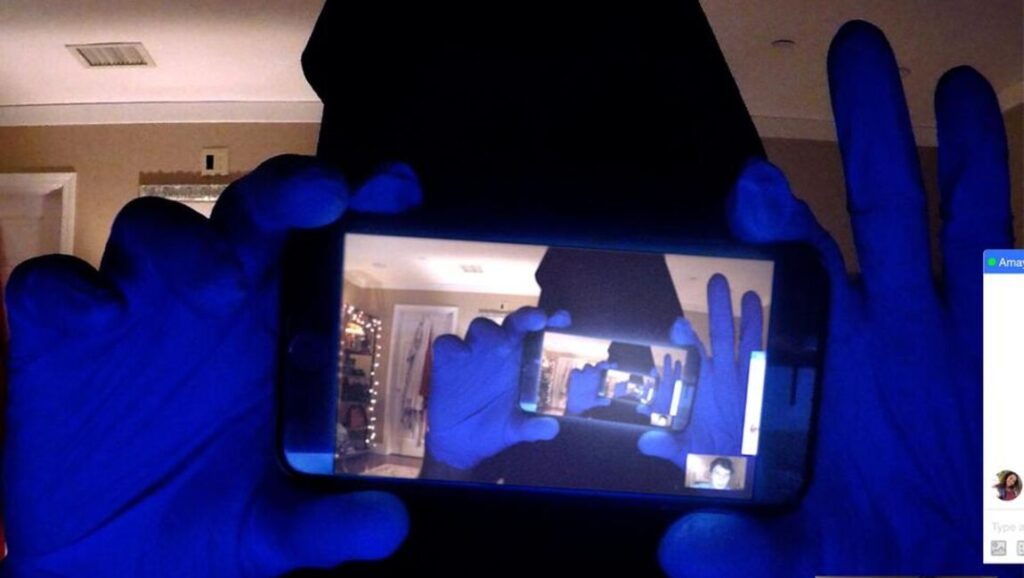It could be that Stephen Susco, the first-time director of improbable horror-sequel Unfriended: Dark Web, is just a previously-undistinguished virtuoso, here aided by a team of tech wizards. More likely, it’s that the film’s text (i.e., the “dark web” of the Internet) is so generative — and the corresponding tools so under-explored in cinema — that the result is just riveting. The hacking at the outset here is its own self-contained joke, serving not just as sleek exposition, but as a rapid-fire time capsule of, for example, “covfefe,” or even the current notion of a password. Even better is the initial set-up: an incessant barrage of visual information, a faintly menacing build-up, eased in by a baseline of humor, often predicated on convenient, but plausible behavioral observations (e.g. a hilariously expository Google-search for “Charon”), and an improved interest in the actual character dynamics (though maybe it’s just that twenty-somethings are less insufferable than teens — speaking as a twenty-something, of course). The film is topical, too, in the way it weaponizes the mutability of the digital image — it even offers a “real-time” Photoshopping effort at one point — and the way that some (here, a certain loudmouth, anti-establishment, paranoiac character) inevitably respond to everything with knee-jerk disbelief. The alternative, of course, is horrifying reality.
The film’s text (i.e., the “dark web” of the Internet) is so generative — and the corresponding tools so under-explored in cinema — that the result is just riveting.
Few films have exploited the suggestive, yet visceral awfulness of material that is, incontrovertibly, out there in the digital void. (The brief snippets of snuff-territory video here — or more specifically, the threat of them — are more squirm-inducing than most horror films can manage, and brought to mind this article about soul-deadening content-moderator jobs.) Susco does so with numerous canny effects: a glitchy screen that effectively simulates jump-scares without “cutting”; side-by-side video streams that function like jarring shock-cuts; even a complete cut-to-black that could have been (or maybe is?) a small-scale digital update of Persona‘s burning celluloid. The traditional horror-movie offings, while not entirely compelling, are smartly conceived, quickly dispensed with, and (in the end) justified in their sadism — even though this sequel arguably relies more on acting to express psychological motivation than the first film did (compare their uses of the “…is typing” cue). Dark Web does cheat with its sound levels and Skype-call veracity, so the fullness of the desktop conceit is traded in for superfluous aural suspense and more “classical” continuity, but that’s ultimately a minor quibble. After all, it’s not every week (or year) that a new release provides two different endings in theaters, simultaneously. Unfriended: Dark Web could very well turn out to be an overrated hit, but until, say, the Harvard Sensory Ethnography Lab puts out a feature in this aesthetic ballpark, it will do.


Comments are closed.